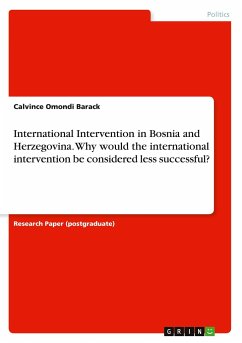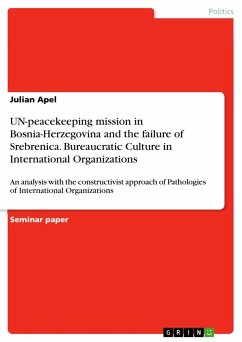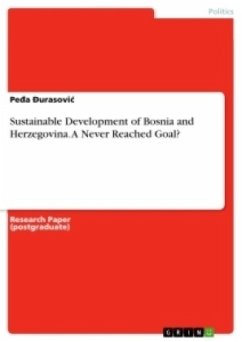Research Paper (postgraduate) from the year 2018 in the subject Politics - International Politics - Topic: Peace and Conflict Studies, Security, grade: 12, , course: Political Science and International Relations, Contemporary Balkan Politics, language: English, abstract: This paper provides an overview of the conflict in Bosnia and Herzegovina and the international intervention in ending the conflict. It begins by tracing the origins of the conflict from the referendum of 29 February and 1 March of 1992 to the Srebrenica massacres. The failure by the international community to restore peace through the Lisbon and Vance-Owen peace plans through Srebrenica to finally Dayton has led to the question: Why would the international intervention in Bosnia and Herzegovina be considered less successful? In answering this question the paper has used four hypothesis of; poor timing, incoherent approach, poor understanding of the conflict situation by the international community and the product of the intervention in the Dayton Peace Agreement and its implication on governance and prospects on EU accession. The paper after thorough discussion of the intervention along the four lines of hypothesis has concluded that the poor timing which goes with the mandate affected the intervention negatively, the lack of coherent approach led to continued commitment of atrocities with poor understanding of the conflict situation informing the division of the country into ethnic lines from Lisbon through to Dayton hence less successful.








